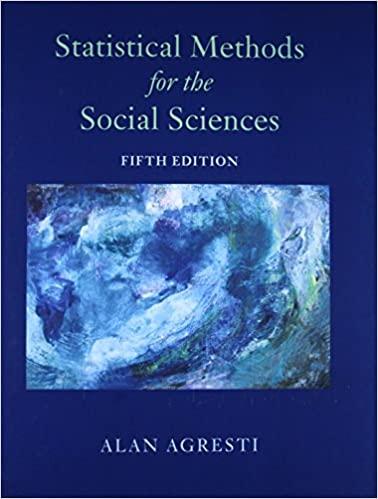An analysis7 of published medical studies involving treatments for heart attacks noted that in the studies having
Question:
An analysis7 of published medical studies involving treatments for heart attacks noted that in the studies having randomization and strong controls for bias, the new therapy provided improved treatment 9% of the time. In studies without randomization or other controls for bias, the new therapy provided improved treatment 58% of the time. For each of the following conclusions, state true or false.
(a) This result suggests it is better not to use randomization in medical studies, because it is harder to show that new ideas are beneficial.
(b) Many newspaper articles that suggest that a particular food, drug, or environmental agent is harmful or beneficial should be viewed skeptically, unless we learn more about the statistical design and analysis for the study.
(c) This result suggests that you should be skeptical about published results of medical studies that are not randomized, controlled studies.
(d) Controlling for biases, both suspected and unsuspected, is necessary in medical research but not in social research, because the social sciences deal in subjective rather than objective truth.
Step by Step Answer:







